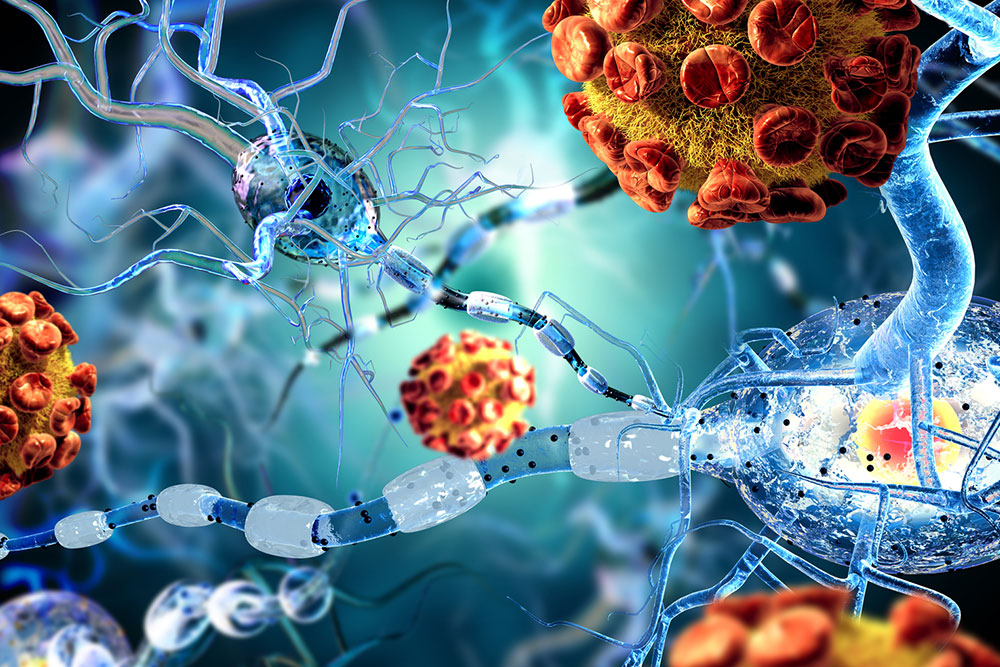
All you need to know about immunodeficiency disorders
Immunodeficiency disorders cause the immune system to malfunction, making one more susceptible to frequent, severe, and long-lasting infections. There are two types of immunodeficiency disorders, that is, primary (congenital) and secondary (acquired).
- Primary : These immunodeficiency disorders affect one since their birth. Moreover, these disorders are genetic in nature. In most cases, this disorder comes to the surface during infancy or in the early childhood years. At the moment, researchers have discovered over 100 primary immunodeficiency disorders, and all happen to be fairly rare.
- Secondary : Unlike primary immunodeficiency disorders, the secondary ones develop in the later stages of life due to chronic disorders or long-term use of certain types of medications, including anticonvulsants, immunosuppressants, corticosteroids, and chemotherapy drugs. These are comparatively more common than the congenital immunodeficiency disorders.
Some immunodeficiency disorders don’t last long and resolve without any treatment. Other cases might be lifelong, but they don’t affect one’s lifespan.
Symptoms of immunodeficiency disorders
The symptoms of immunodeficiency disorders vary from person to person. Typically, one might persistently have to deal with respiratory and bacterial infections that keep worsening. For instance, a sore throat and cold might turn into pneumonia. Likewise, infections of the eyes, mouth, and intestines are also quite common. People with immunodeficiency might suffer from recurrent episodes of gingivitis, ear and skin infections, and pyoderma. The above-stated conditions could further lead to loss of appetite, weight loss, and enlarged liver or spleen. Infants or young children might have developmental issues along with digestive problems, particularly diarrhea.
The doctor will order for certain diagnostic tests if the patient fails to recover from an infection or if they observe the same illness repeatedly. Blood and skin exams, biopsies, and genetic testing are some diagnostic methods used for detecting an immunodeficiency disorder. They might also inspect the spleen, tonsils, and lymph nodes of the patient.
Managing immunodeficiency disorders
Immunodeficiency disorders usually can’t be cured, but they can be managed well with the help of preventive measures and treatments. Getting the right vaccinations to stimulate the production of antibodies in the system is one of the most crucial preventive measures. However, the doctor will be the best judge of what kind of vaccines will be apt for the patient. This is because people suffering from an immunodeficiency disorder might be unable to cope with the effects of certain types of vaccinations.
When an infection develops, its symptoms can be controlled with the help of antibiotics and antivirals medications. Antibiotics might also have to be given to the patient right before any dental or surgical procedure is conducted to prevent any bacteria from infecting the bloodstream.
In cases where the body is not capable of making sufficient antibodies, the doctor will recommend an introduction of immunoglobulins in the body via intravenous or subcutaneous methods. Intravenous immunoglobulin has to be taken once a week, whereas subcutaneous ones have to be implanted under the skin only once a month. If the immunodeficiency disorder is projecting severe symptoms, the doctor might suggest a stem cell transplantation. In this treatment, stem cells are extracted from the blood (including the umbilical cord blood) or bone marrow to permanently correct the condition.


